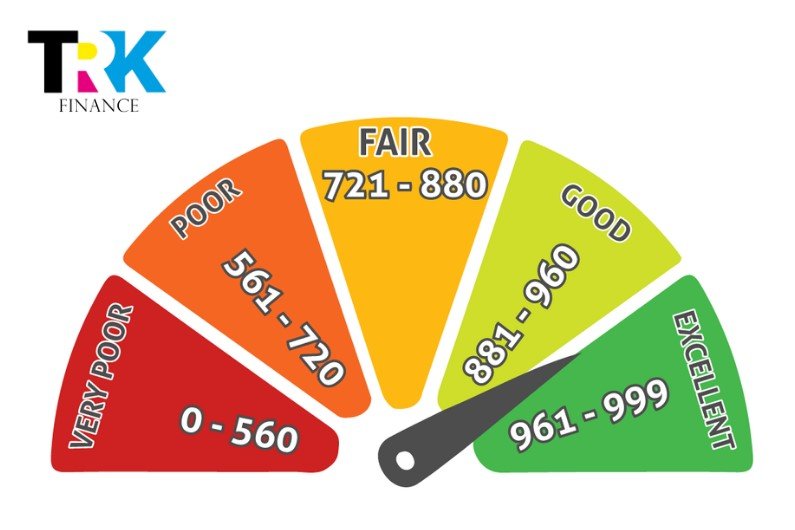Your credit score is more important than most people think. People who are not aware learn it the hard way as lenders look at it like a report card. If you have a high score, you have good chances to get approved. Low score ? Well… not so much, but don’t worry. Everyone can fix it by starting to make small changes like Check your credit report, spot mistakes, pay bills on time and reduce debt, every little step counts. By the time you’re ready to apply, your score could be much stronger. This blog is your roadmap towards improving your credit score. Take one step at a time.
Lets quickie dive into 6 methods you can practice to improve your credit score:
Table of Contents
Toggle1. Minimise Your Credit Utilisation

Keeping your credit card balance low can not only improve your credit score but also shows moneylender agency that you can manage credit responsibly. It indicates that you are not completely reliable on borrowing, which builds trust and strengthens your credit profile. Regularly monitoring your balances and making payments on time can further enhance your credit score, helping you qualify for better credit card deals and limits in future. With every credit card, you are given a limit which determines how much credit you can borrow and use against your limit, which can impact your credit score. So try to keep your credit utilisation to a minimum level. The lower the utilisation(ideally under 30%), the better the score.
2. Always Keep Checking Your Credit Report
First of all, it’s a huge myth and misconception that checking your credit score daily decreases your credit score. Checking your credit score regularly can help monitor your performance and even flag any errors or potential cases of fraud. When you yourself check your score it’s called a soft check and when other retailers check your credit score for any purchase related purpose it’s called hard check or inquiry. A hard check may decrease your score and keep it under the record until 12 months. But we highly recommend self-checking. Sometimes these errors can be minor, such as a misspelling of your name or having the wrong address on your profile. Update any changes as quickly as you can.
Monitoring can also help spot any unusual activities, such as credit applications you did not apply for. If you believe there is fraudulent activity impacting your credit score, contact the CRA immediately. Making a fraud alert will not affect your credit score.
3. Build A Good Credit History

Your credit history is a record of how you have been spending your money and paying your debts. Credit Agencies will look at your credit history when assessing how you manage your finances. Your credit history will be sourced by your bank, credit agencies, loan department, government and collection agencies.
With a positive credit history, it may be easier for CRAs to determine your score. You can build a positive credit history by having a bank account to pay credit bills, paying household bills and tax regularly. Never missing any payment with all in one go payment is a good practice.
Try not to change your bank account regularly. Keeping a well-managed bank account open for a long period can give credit reporters a better idea of how you manage your money. In some cases, having an old bank account in good standing or credit cards often paid off regularly can boost your credit score. So avoid closing any active bank accounts if you can.
4. Check If You Are Registered
CRAs will check to make sure you are a UK resident by looking at the electoral roll. If you aren’t registered, it will impact your credit score negatively, so make sure you do so as soon as possible. Even if you live at home with your parents or share a house with roommates, you will still need to register.If you have just recently moved, you can register online or by post. To double-check, contact your local electoral office for confirmation that your name and current address are in the system.
5. Pay Off Your Credit Card On Time

Late or missing payments on credit cards and other loan repayments can cause a heavy impact on your credit score. Credit scores will be determined based on your financial behaviour over a period of time, so paying back consistently is key.
Paying off your credit balances and loans in full can boost your overall score. If you cannot make a payment in full, be sure to at least make the minimum payment before or on the agreed due date. If you need help remembering to pay on time, check to see if you can set up a direct debit.
Considering the above, paying on time also helps build trust with creditors and financial institutions, proving them that you are responsible and reliable. Late payments even by just a few days can stay on your credit report for years and it can lower your score significantly. We recommend setting reminders or using mobile banking alerts to keep you on track. Keeping your credit card balance low can also reduce interest charges and protect your credit utilisation ratio, as mentioned above to calculate your score. Developing these habits early can strengthen your overall financial profile and make a good credit score for the future.
6. Limit Your Hard Credit Checks
Applying for multiple credit cards, overdrafts or loans in a short time can give moneylenders the impression that you are desperate for credit. During the application process, an agency or bank will perform a ‘hard credit check’, which alerts CRAs that someone is checking your credit score.
Too many hard checks within a small period can lower your credit score for quite some time because they may suggest higher financial risk. Every hard inquiry remains on your credit report for about 12 months, and institutes who provide loans might see this as a sign of financial instability. To avoid this, try to avoid your credit application check and only apply when you genuinely need credit. Consider using eligibility checkers that run a soft search before applying. Being selective and strategic with your applications can help protect your credit rating and build customer client relationship confidence.
Conclusion
It is very important to maintain the credit score not just because everyone is maintaining it but for yourself if you need financial help like buying a house, car, property or investing in a new business, a good credit score can make things easy. Although we at TRK Finance provide loans to people with less credit score and we do not do hard checks, we recommend to stay in loop and keep the credit score up to date. This can improve the loan amount and build a good customer client relationship.






